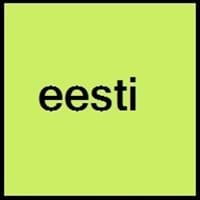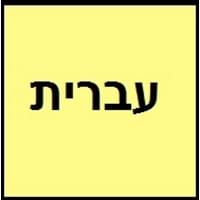Estonian vs Hebrew
Countries
Estonia, European Union
Israel
National Language
Estonia, Gambia
Israel
Second Language
Not spoken in any of the countries
Israel
Speaking Continents
Europe
Africa, Asia, Europe
Minority Language
Denmark, Russia, Sweden
Poland
Regulated By
Institute of the Estonian Language
Academy of the Hebrew Language
Interesting Facts
- Estonian language is considered to be powerful symbol of Estonian identity and culture.
- Estonian language has adopted many words with Finnish language.
- The original language of Bible is Hebrew.
- The men and women use different verbs in hebrew language.
Similar To
Finnish
Arabic and Aramaic languages
Derived From
Not Available
Aramaic Language
Alphabets in
Estonian-Alphabets.jpg#200
Hebrew-Alphabets.jpg#200
Writing Direction
Left-To-Right, Horizontal
Right-To-Left, Horizontal
Thank You
aitäh
תודה (Toda)
How Are You?
kuidas sul läheb
מה שלומך? (ma shlomxa)
Good Night
Head ööd
לילה טוב (Laila tov)
Good Evening
Tere õhtust
ערב טוב (Erev tov)
Good Afternoon
Tere päevast
אחר צהריים טובים (Achar tzahara'im tovim)
Good Morning
Tere hommikust
בוקר טוב (Boker tov)
Please
Palun
בבקשה (bevekshah)
Sorry
Vabandust
סליחה! (Slicha)
Bye
Head aega
להתראות (Lehitraot)
I Love You
ma armastan sind
אני אוהבת אותך (Ani ohevet otcha)
Excuse Me
Vabandage
בבקשה!
Dialect 1
Keskmurre
Ashkenazi Hebrew
Where They Speak
Gabon, Northeastern coast of Estonia
Israel
Dialect 2
Tartu
Samaritan Hebrew
Where They Speak
Georgia, South Estonia
Israel, Palestine
Dialect 3
Idamurre
Yemenite Hebrew
Where They Speak
France, Northwestern shore of Lake Peipsi.
Israel
Speaking Population
Not Available
Not Available
Second Language Speakers
Not Available
Native Name
eesti keel
עברית / עִבְרִית (ivrit)
Alternative Names
Eesti keel
Israeli, Ivrit
French Name
estonien
hébreu
German Name
Estnisch
Hebräisch
Pronunciation
Not Available
[(ʔ)ivˈʁit] - [(ʔ)ivˈɾit]
Ethnicity
Estonians
Not Available
Origin
13th century
1000 BC
Language Family
Uralic Family
Afro-Asiatic Family
Subgroup
Finno-Ugric
Semitic
Early Forms
No early forms
Biblical Hebrew, Mishnaic Hebrew, Medieval Hebrew, Hebrew
Standard Forms
Estonian
Modern Hebrew
Language Position
Not Available
Signed Forms
Estonian Sign Language
Signed Hebrew
Scope
Macrolanguage
Individual
ISO 639 6
Not Available
Not Available
Glottocode
esto1258
hebr1246
Linguasphere
No data available
12-AAB-a
Language Type
Living
Living
Language Linguistic Typology
Subject-Verb-Object
Subject-Verb-Object, Verb-Subject-Object
Language Morphological Typology
Agglutinative
Fusional, Synthetic
Estonian and Hebrew Language History
Comparison of Estonian vs Hebrew language history gives us differences between origin of Estonian and Hebrew language. History of Estonian language states that this language originated in 13th century whereas history of Hebrew language states that this language originated in 1000 BC. Family of the language also forms a part of history of that language. More on language families of these languages can be found out on Estonian and Hebrew Language History.
Estonian and Hebrew Greetings
People around the world use different languages to interact with each other. Even if we cannot communicate fluently in any language, it will always be beneficial to know about some of the common greetings or phrases from that language. This is where Estonian and Hebrew greetings helps you to understand basic phrases in Estonian and Hebrew language. Estonian word for "Hello" is Tere or Hebrew word for "Thank You" is תודה (Toda). Find more of such common Estonian Greetings and Hebrew Greetings. These greetings will help you to be more confident when conversing with natives that speak these languages.
Estonian vs Hebrew Difficulty
The Estonian vs Hebrew difficulty level basically depends on the number of Estonian Alphabets and Hebrew Alphabets. Also the number of vowels and consonants in the language plays an important role in deciding the difficulty level of that language. The important points to be considered when we compare Estonian and Hebrew are the origin, speaking countries, language family, different greetings, speaking population of these languages. Want to know in Estonian and Hebrew, which language is harder to learn? Time required to learn Estonian is 44 weeks while to learn Hebrew time required is 44 weeks.





